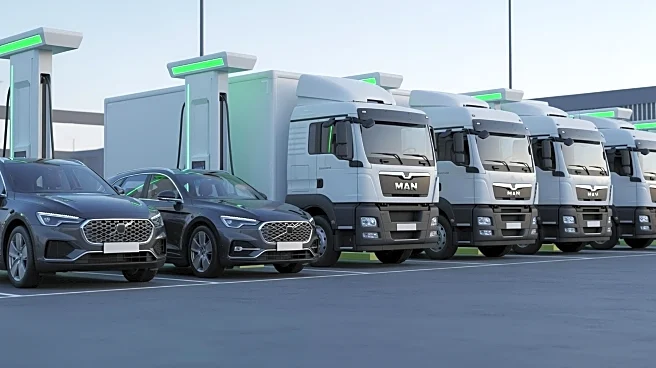What's Happening?
The trucking industry has made significant strides in improving fuel efficiency, with average miles per gallon increasing from 5.2 to 6.9 over recent years. Fleets participating in the Fleet Fuel Study
have achieved an average of 7.8 mpg, with some exceeding double-digit mpg figures. As the industry shifts towards alternative fuels like compressed natural gas, battery electric, and hydrogen fuel cell-powered vehicles, there is a growing focus on freight efficiency. This includes optimizing routing, reducing empty miles, and increasing trailer load capacity. Manufacturers of alternative powertrains are working to enhance vehicle efficiency, with improvements in range for battery electric and hydrogen fuel cell trucks.
Why It's Important?
Improving fleet efficiency is crucial for reducing operational costs and environmental impact. As the industry transitions to alternative powertrains, maintaining high efficiency levels is essential for competitiveness and sustainability. Enhanced freight efficiency can lead to significant cost savings and reduced emissions, benefiting both businesses and the environment. The focus on efficiency also supports the broader shift towards cleaner transportation solutions, aligning with global sustainability goals.
What's Next?
Fleets are expected to continue investing in efficiency-enhancing technologies and training drivers to optimize vehicle performance. Manufacturers will likely focus on further improving the range and efficiency of alternative powertrains, driving innovation in the sector. The industry may see increased collaboration between stakeholders to develop solutions that enhance freight efficiency across all vehicle types.








